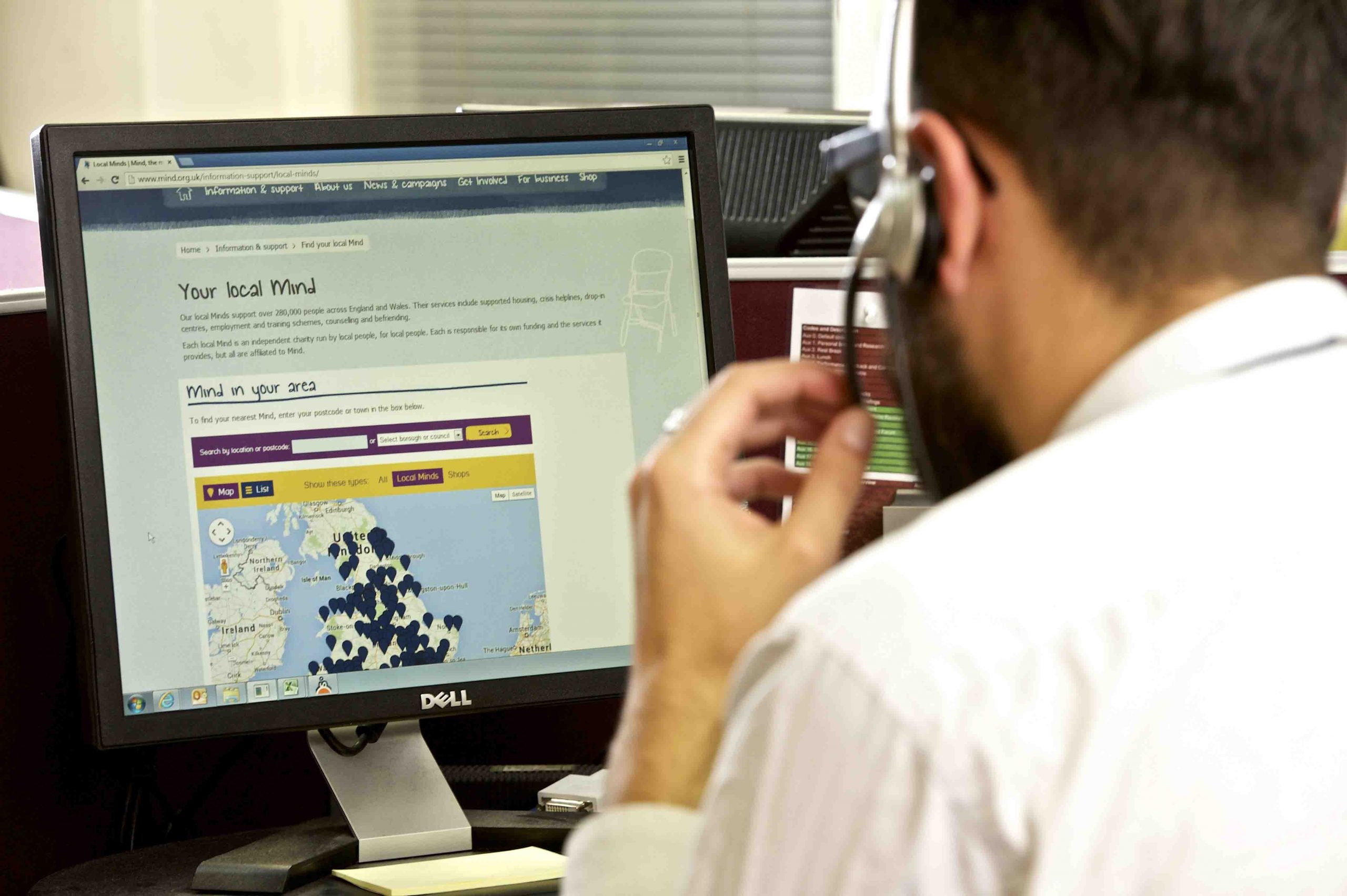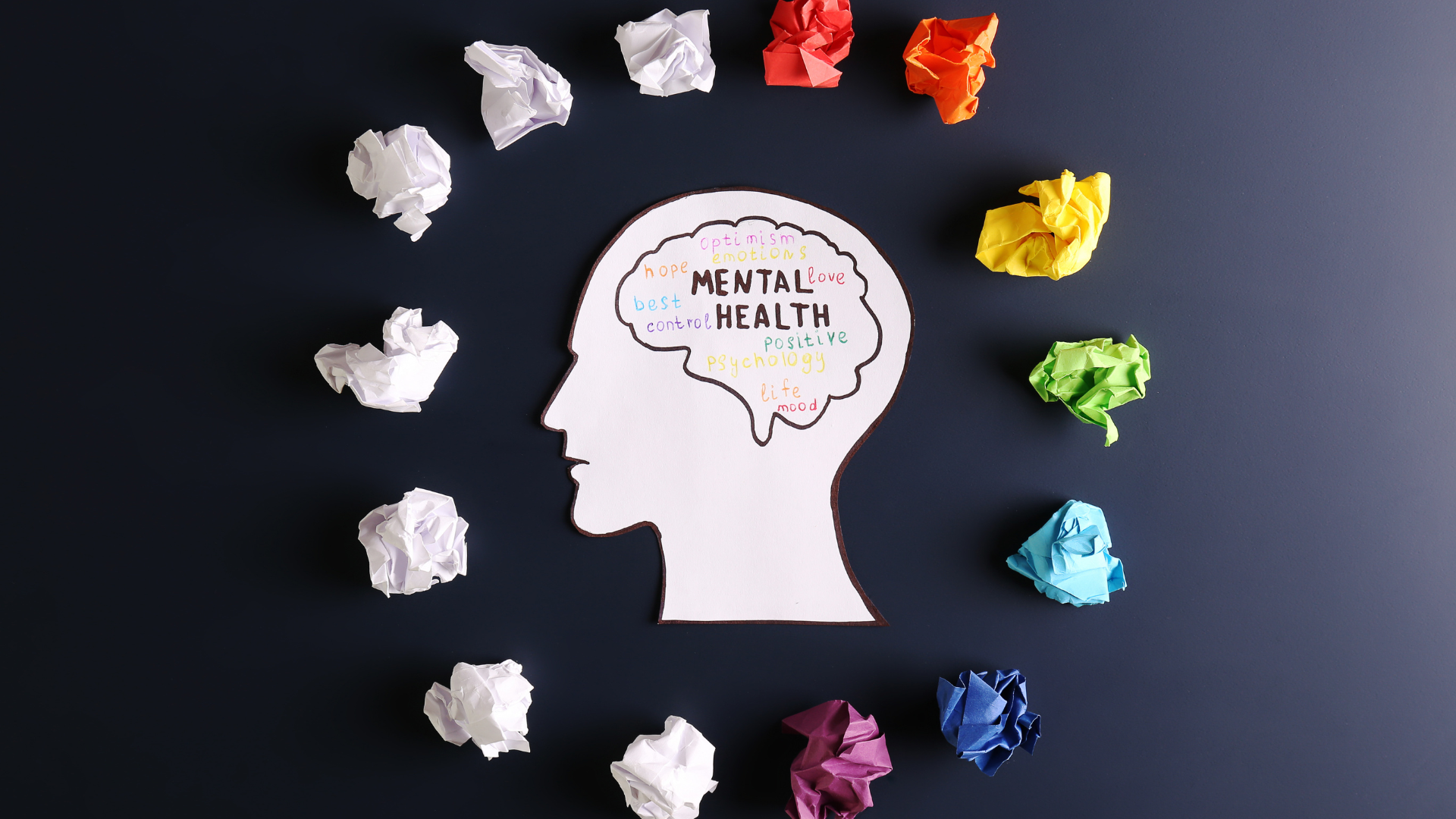What is mental health?
Mental health includes our emotional, psychological, and social well-being. It affects how we think, feel, and act. It also helps determine how we handle stress, relate to others, and make choices. Mental health is important at every stage of life, from childhood and adolescence through adulthood.
What is the NHS definition of mental health?
The definition of mental health in the national ‘No Health without Mental Health’ policy is that it is a positive state of mind and body, feeling safe and able to cope, with a sense of connection with people, communities and the wider environment.
Mental Health: At Work
Working conditions and environment can have a huge impact on mental health and, equally, someone’s mental health can have a significant impact on work performance.
1 in 6.8 people experience mental health problems in the workplace.
Women in full-time employment are nearly twice as likely to have a common mental health problem as full-time employed men.
Evidence suggests that 12.7% of all sickness absence days in the UK can be attributed to mental health conditions.
Key Support Organizations:
The following organizations can provide helpful information and advice:
The Department for Work and Pensions (DWP) Health, Work and Wellbeing initiative provides useful information on the steps Government is taking to improve mental wellbeing in the workplace.
The Health and Safety Executive have some useful information and advice about how to manage work-related stress.
Mindful Employer provides employers with information and support for staff who have a mental health problem.
The Time to Change Campaign has lots of resources and hints and tips on ways to support people with mental health problems.
Inequality and mental health
A survey of over 14,000 adults by the mental health charity Mind has revealed that existing inequalities in housing, employment, finances and other issues have had a greater impact on the mental health of people from Black, Asian and Ethnic Minority (BAME) groups than white people during the coronavirus pandemic. Mind says the findings raise concerns that the fall-out of the pandemic will disproportionately affect some communities far into the future.

MIND FOR BETTER MENTAL HEALTH
MIND
Click here for support and to find out more about Mind.
What is wellbeing?
Wellbeing is defined by the Oxford English Dictionary as “the state of being comfortable, healthy, or happy.” However, it is important to realize that wellbeing is a much broader concept than moment-to-moment happiness. While it does includes happiness, it also includes other things, such as how satisfied people are with their life a whole, their sense of purpose, and how in control they feel.
5 ways to wellbeing.
CONNECT: Connection is about relating to others and feeling understood.
BE ACTIVE: Engaging in regular physical activity is known to go hand in hand with lower rates of depression and anxiety across all age groups.
TAKE NOTICE: Take stock of your surroundings, be curious, catch sight of the beautiful. Being in a state of ‘mindfulness’ has been shown to be associated with a positive mental state.
LEARNING: Learning something new is good for your brain.
GIVE: Evidence suggests that ‘giving back’ or helping others promotes wellbeing for all ages.
NHS 5 steps to mental wellbeing
Wellbeing: Healthy Eating
Eating a healthy, balanced diet is an important part of maintaining good health, and can help you feel your best. This means eating a wide variety of foods in the right proportions, and consuming the right amount of food and drink to achieve and maintain a healthy body weight.
The Eatwell Guide shows that to have a healthy, balanced diet, people should try to:
- Eat at least 5 portions of a variety of fruit and vegetables every day (see 5 A Day)
- Base meals on higher fibre starchy foods like potatoes, bread, rice or pasta
- Have some dairy or dairy alternatives (such as soya drinks)
- Eat some beans, pulses, fish, eggs, meat and other protein
- Choose unsaturated oils and spreads, and eat them in small amounts
- Drink plenty of fluids
The NHS ‘Live Well’ campaign (www.nhs.uk) provides lots of useful advice on keeping healthy. When we are young we don’t often think about the effects poor eating, little exercise and unhealthy lifestyles will have on our bodies. A takeaway or over indulging on a night out while very great at the time, if consumed too often will have a lasting impact on your health.
8 tips for healthy eating
The key to a healthy diet is to eat the right amount of calories for how active you are so you balance the energy you consume with the energy you use. If you eat or drink more than your body needs, you’ll put on weight because the energy you do not use is stored as fat. If you eat and drink too little, you’ll lose weight. You should also eat a wide range of foods to make sure you’re getting a balanced diet and your body is receiving all the nutrients it needs. It’s recommended that men have around 2,500 calories a day (10,500 kilojoules). Women should have around 2,000 calories a day (8,400 kilojoules).
1. Base your meals on higher fibre starchy carbohydrates: Starchy carbohydrates should make up just over a third of the food you eat. They include potatoes, bread, rice, pasta and cereals. Choose higher fibre or wholegrain varieties, such as wholewheat pasta, brown rice or potatoes with their skins on.
2. Eat lots of fruit and veg: It’s recommended that you eat at least 5 portions of a variety of fruit and veg every day. They can be fresh, frozen, canned, dried or juiced.
3. Eat more fish, including a portion of oily fish: Fish is a good source of protein and contains many vitamins and minerals.
Aim to eat at least 2 portions of fish a week, including at least 1 portion of oily fish.
4. Cut down on saturated fat and sugar: You need some fat in your diet, but it’s important to pay attention to the amount and type of fat you’re eating. There are 2 main types of fat: saturated and unsaturated. Too much saturated fat can increase the amount of cholesterol in the blood, which increases your risk of developing heart disease. Regularly consuming foods and drinks high in sugar increases your risk of obesity and tooth decay. Sugary foods and drinks are often high in energy (measured in kilojoules or calories), and if consumed too often can contribute to weight gain. They can also cause tooth decay, especially if eaten between meals. Free sugars are any sugars added to foods or drinks, or found naturally in honey, syrups and unsweetened fruit juices and smoothies.
5. Eat less salt: no more than 6g a day for adults: Eating too much salt can raise your blood pressure. People with high blood pressure are more likely to develop heart disease or have a stroke.
6. Get active and be a healthy weight: As well as eating healthily, regular exercise may help reduce your risk of getting serious health conditions. It’s also important for your overall health and wellbeing.
7. Do not get thirsty: You need to drink plenty of fluids to stop you getting dehydrated. This is in addition to the fluid you get from the food you eat.
8. Do not skip breakfast: Some people skip breakfast because they think it’ll help them lose weight.

How to improve your mental wellbeing
Explains what mental wellbeing means and gives tips to help you take care of your mental wellbeing.
What is stress?
Stress is how we react when we feel under pressure or threatened. It usually happens when we are in a situation that we don’t feel we can manage or control.
When we experience stress, it can be as:
- An individual, for example when you have lots of responsibilities that you are struggling to manage
- Part of a group, for example if your family is going through a difficult time, such as bereavement or financial problems
- Part of your community, for example if you belong to a religious group that is experiencing discrimination
- A member of society, for example during natural disasters or events like the coronavirus pandemic
When is stress a problem?
Sometimes, a small amount of stress can help us to complete tasks and feel more energised. But stress can become a problem when it lasts for a long time or is very intense. In some cases, stress can affect our physical and mental health.
You might hear healthcare professionals refer to some types of stress as ‘acute’ or ‘chronic’:
- Acute stress happens within a few minutes to a few hours of an event. It lasts for a short period of time, usually less than a few weeks, and is very intense. It can happen after an upsetting or unexpected event. For example, this could be a sudden bereavement, assault or natural disaster.
- Chronic stress lasts for a long period of time or keeps coming back. You might experience this if you are under lots of pressure a lot of the time. You might also feel chronic stress if your day-to-day life is difficult, for example if you are a carer or if you live in poverty.
Managing Stress and building resilience
Being prepared for periods of stress can make it easier to get through them. And knowing how to manage our wellbeing can help us recover after a stressful event. Some of us may refer to our ability to manage stress as our resilience.
There are things we can try to build our resilience against stress. But there are also factors that might make it harder to be resilient, such as experiencing discrimination or lacking support.
Barriers to resilience
The terms ‘resilience’ and ‘managing stress’ can mean different things to different people. We might understand them differently because our experiences shape how we feel stress, and how easily we can respond to it.
Some people may think that our response to stress is something that we can all easily control. But this is not true. There are some causes of stress that are beyond our control. And some ways of managing stress and building resilience are not always available to us.
This makes dealing with stress very personal – it may be harder for some of us than for others. Some experiences that can make it more difficult include:
- Having a long-term physical health condition
- Having a mental health problem
- Experiencing discrimination and hate, including racism, homophobia, biphobia or transphobia
- Living far away from family or friends, or having difficult relationships with them
- Experiencing loneliness
- Experiencing poverty and money worries, including debt or problems with benefits
- Living in an area with poor access to services like healthcare, public transport and green spaces
- Being a single parent
- Being a carer
- Having poor quality housing
- Lacking safety and protection, such as living in areas with poor policing
Research shows that it is easier to develop resilience if we don’t face these barriers. But many of these things are difficult or impossible to change.
Remember: if you face these barriers, this is not your fault. And it is not up to you to remove these barriers yourself.
Tips for managing stress
Below are some tips you could try to help you manage stress and build your resilience. Trying these ideas won’t make all the stress in your life disappear. But they could make it easier to get through stressful situations.
Look after your wellbeing
Taking care of your wellbeing can help you feel more able to manage stress. Different things will work for different people, but these are some ideas you could try:
- Be kind to yourself. Learning to be kinder to yourself can help with how you feel in different situations. Try to take breaks in your day for things you enjoy. And reward yourself for your achievements, even if they seem small.
- Try to find time to relax. This might feel hard if you can’t do anything to stop a situation that is making you stressed. But if you can allow yourself a short break, this can help with how you feel. See our pages on relaxation for some tips and exercises.
- Develop your interests and hobbies. Spending time on things you enjoy could help distract you from a stressful situation. If stress is making you feel lonely or isolated, shared hobbies can also be a good way to meet new people.
- Spend time in nature. This can help to reduce stress and improve wellbeing. You could try going for a walk in a green space, taking care of indoor plants, or spending time with animals.
- Look after your physical health. Getting enough sleep, staying physically active and eating a balanced diet can make stress easier to manage. Stress can sometimes make these things difficult to look after. But even small changes can make a big difference.

Depression and anxiety self-assessment quiz
Try out the NHS Mood self-assessment quiz, this can help you better understand how you’ve been feeling recently.
